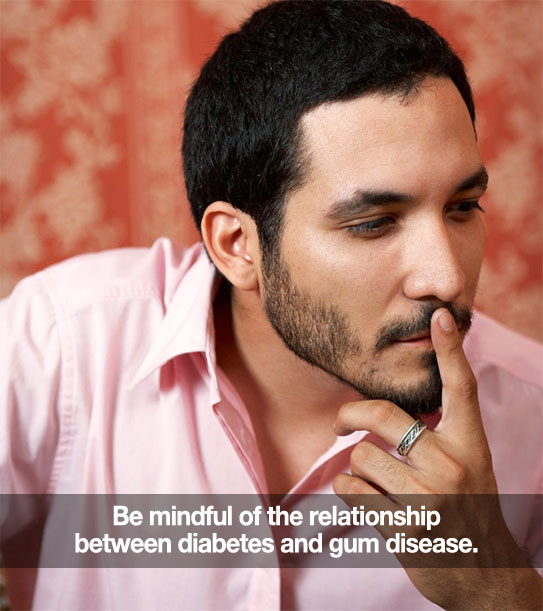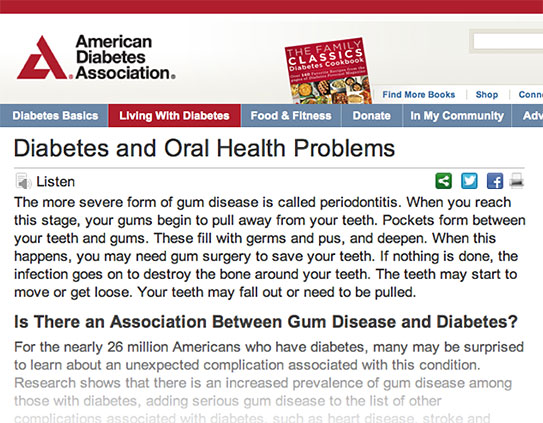Do You, Or Does Someone You Love, Have Diabetes?

NEARLY EVERYONE KNOWS SOMEONE WHO is directly or indirectly affected by diabetes. Not only can diabetes be difficult to manage, but it can also increase a person’s risk for other major health problems—including oral health problems which can also affect your orthodontic treatment.
Despite the over 300 million people worldwide suffering from diabetes, many, many people are unaware of its connection with periodontitis, so it really becomes everyone’s responsibility to raise awareness, and remind those with diabetes to take special care of their gums before, during, and after orthodontic treatment.
Diabetes Can Make A Person Twice As Likely To Develop Gum Disease
Diabetes lowers a person’s ability to fight infection in his or her mouth and gums, which is essentially what gum disease is—infection caused by excessive bacteria hanging out at the gum line and in the mouth. And, there’s also a big catch 22. While diabetes can contribute to gum disease, the gum disease (in return) can exacerbate diabetes. Gum disease can further increase risk for problems that diabetics are prone to—things like kidney disease, heart disease and stroke. And just like other infections, it can cause blood sugar levels to rise.
Does This Affect Your Orthodontic Care Plan?
YES—gum disease can absolutely affect your orthodontic treatment. We don’t want to move your teeth while your gums are stressed, and people have even had to prematurely stop orthodontic treatment due to periodontitis.
The good news is that if you take good care of your gums, your orthodontic treatment will help you have even better gum health in the future, since crooked teeth contribute to gum disease.
Tips For Diabetic Patients:
- First, be active, eat right, and keep your diabetes under control.
- Brush at least twice a day, and floss once a day.
- Make our team aware of your diabetes! We’ll help you keep an eye on any oral health problems that may arise.
- Don’t smoke—your mouth has enough to worry about already.
Keep An Eye Out For The Symptoms
It’s much easier to reign in gum disease if you catch it early. So if you notice these early signs, talk to our practice.
- a change in your bite
- receding gums (which will make your teeth feel sensitive)
- swollen, red, or tender gums
- bleeding when you brush or floss
Would You Like To Learn More?
Click on the image below to read more about this topic from the American Diabetes Association:
Do you have questions for us about diabetes and your oral health? Please ask us! Leave a comment below, give us a call, or message us on Facebook.
Thanks for being a valued patient in our practice!



Leave a Reply
You must be logged in to post a comment.